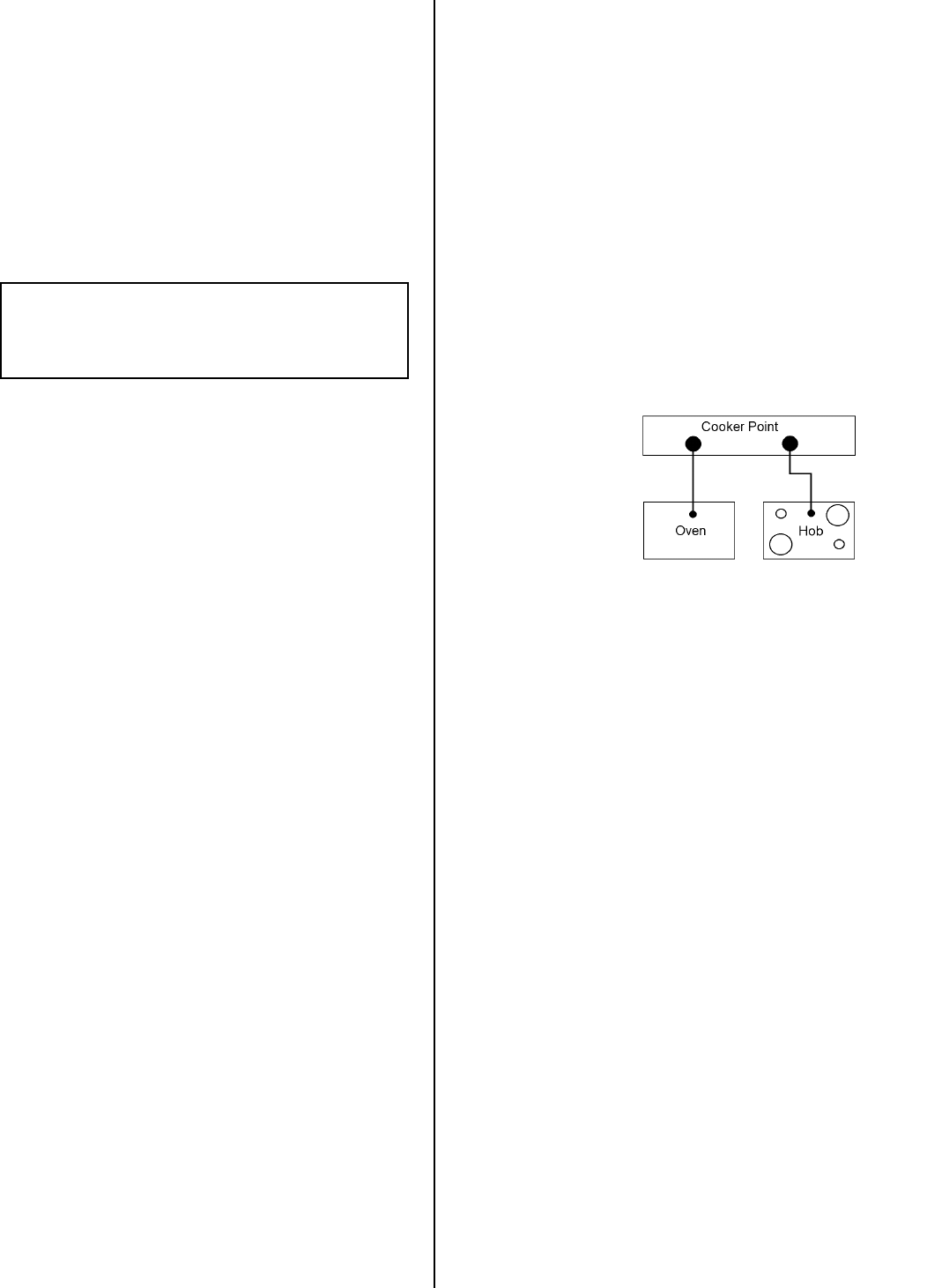
35
CHOICE OF ELECTRICAL CONNECTION
• There are three possible ways to connect your
appliance. In each case the appliance should be
operated using at least 6mm
2
twin core and earth
PVC insulated. Please choose from the most
appropriate after reading the different methods:-
a) By connecting the appliance to a cooker point
(having a double pole isolating switch with at
least 3mm contact separation in all poles and
neutral) and protected with a fuse or miniature
circuit breaker at your mains fuse box.
b) By connecting the appliance together with a hob
directly to a cooker point(s). Having a double
pole isolating switch with at least 3mm contact
separation in all poles and neutral.
c) If you wish to connect an oven and a hob to a
cooker point you can by connecting the oven and
hob separately to the cooker point. Oven and
hob units should be separately connected to a
cooker point. See Fig. 2.
NOTE: It is good practice to :
• Fit an Earth Leakage Circuit Breaker to your
house wiring.
• Wire your appliance to the latest IEE regulations.
PREPARING CABINET FOR FITTING OF
OVEN
• Make sure that the cabinet is the correct size for
the appliance to be fitted (Ref. Fig. 3).
• If the size is between 565-570mm, then the
cabinet should be modified so that at the screw
fixing points the recommended dimension of at
least 560-565mm is maintained. The modification
should ideally be localised to ensure that after
screw fitment the oven is securely fixed into
position.
• The cabinet must be stable and level by firmly
securing it to the wall or floor. If necessary,
make arrangements to ensure the shelf upon
which the oven will rest is level.
• When the appliance is installed ensure a
minimum gap of 2mm is maintained between the
trim on the bottom edge of the appliance, and
any corresponding door / panel underneath.
Subject to Regional Electricity Companies
regulations if you wish to connect the oven
and hob to the power supply you may use
one of the following two methods:-
Fig. 2


















